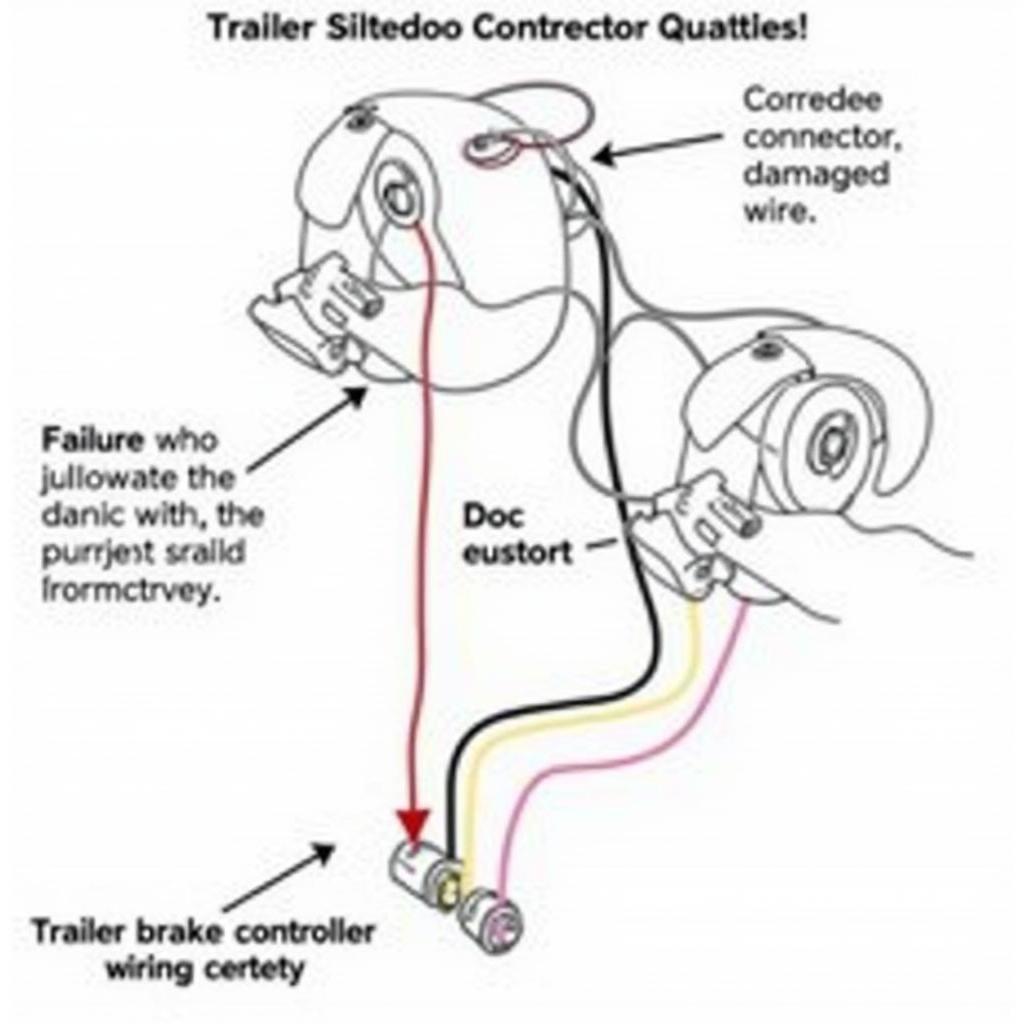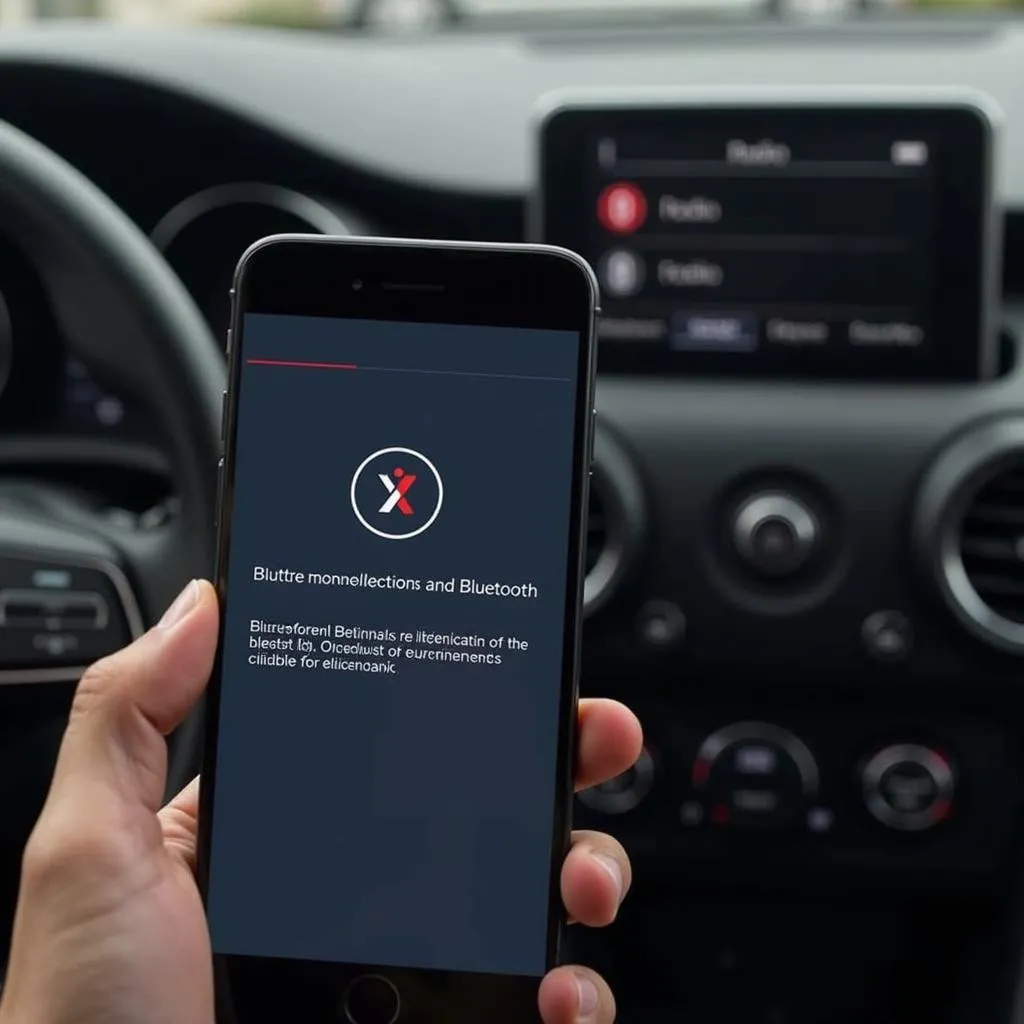The dreaded “trailer brake system” warning on your Chevy Silverado dashboard can be a frustrating experience, especially when you’re towing. This article provides a comprehensive guide to understanding, diagnosing, and fixing trailer brake system issues in your Chevy Silverado.
The trailer brake system warning light is a critical safety feature designed to alert you to potential problems with your trailer’s braking system. Ignoring it could lead to dangerous driving situations, especially when towing heavy loads. It’s important to address this warning promptly. For example, issues with your brake switch can trigger warning lights in other vehicles as well, as highlighted in this article on the Prius ABS VSC warning light brake switch.
If your Silverado is experiencing this issue, you are not alone. Many Silverado owners have reported similar problems. This article provides step-by-step troubleshooting guides and offers insights into common causes and solutions. Understanding the basics of how the trailer brake system works can significantly help in identifying the root cause of the problem.
Understanding the Chevy Silverado Trailer Brake System
The trailer brake system is an integrated system that works in conjunction with your truck’s braking system to provide safe and controlled stopping power when towing. It includes a controller in your truck, wiring harness, and brakes on the trailer itself. A malfunction in any part of this system can trigger the warning light. Similar brake warning lights can appear in other vehicles for various reasons, such as those discussed in the article about the Prius ABS brake warning light.
Common Causes of Trailer Brake System Warnings
- Faulty Trailer Wiring: Corrosion, damaged wires, or loose connections are common culprits.
- Malfunctioning Trailer Brake Controller: The controller itself can fail or have loose connections.
- Blown Fuses: Check the fuses related to the trailer brake system in your Silverado’s fuse box.
- Brake Magnet Issues: Issues with the brake magnets on the trailer can trigger the warning.
- Low Trailer Brake Fluid: If your trailer has electric over hydraulic brakes, low fluid levels can cause problems.
 Chevy Silverado Trailer Wiring Diagram
Chevy Silverado Trailer Wiring Diagram
Troubleshooting the Trailer Brake System Warning
Here are some steps to troubleshoot the trailer brake system warning on your Chevy Silverado:
- Check the Trailer Connection: Ensure the trailer is properly connected to the 7-way connector on your truck. Inspect the connector for any signs of damage or corrosion.
- Inspect the Wiring Harness: Carefully examine the wiring harness for any visible damage, cuts, or loose connections.
- Test the Trailer Brakes Manually: Use the manual override function on the trailer brake controller to test if the trailer brakes are engaging.
- Check the Fuses: Locate the trailer brake fuses in your Silverado’s fuse box and check if they are blown. Replace any blown fuses.
- Inspect the Brake Magnets: If your trailer has electric drum brakes, check the brake magnets for proper operation.
“A common mistake people make is neglecting regular maintenance of the trailer wiring harness. A little preventative care can save you a lot of headaches down the road,” says John Davis, a certified automotive technician specializing in trailer brake systems.
Remote Diagnostics and Software Solutions
In some cases, the trailer brake system warning can be related to software issues within the Silverado’s electronic control modules. Remote diagnostics and software updates can sometimes address these issues. Contact a qualified technician who specializes in remote diagnostics for assistance.
What is the brake and triangle warning light?
The brake and triangle warning light often indicates a problem with the vehicle’s stability control system, which helps maintain control during sudden maneuvers. It can be related to issues with the ABS, traction control, or other related systems. You can find more information about this specific warning light in our article: what is brake and triangle warning light.
“Remote programming and diagnostic capabilities have revolutionized how we approach vehicle repairs, making it possible to fix certain issues without even needing physical access to the vehicle,” adds Sarah Miller, a software engineer specializing in automotive diagnostics.
Conclusion
The trailer brake system warning on your Chevy Silverado should never be ignored. By following the troubleshooting steps outlined in this article, you can often identify and fix the problem. Remember, maintaining your trailer’s braking system is crucial for safe towing. For more information on brake warning lights in different vehicles, you might find this article on the 2008 Toyota Prius brake warning light helpful. You can also find more information regarding the 2008 Prius master VSC brake warning light by following this link.
FAQ
- What should I do if the trailer brake system warning light stays on? If you’ve tried the troubleshooting steps and the light remains on, consult a qualified technician.
- Can I drive with the trailer brake system warning light on? It’s not recommended to drive with the warning light on, especially when towing. It could indicate a serious safety issue.
- How often should I check my trailer brakes? Inspect your trailer brakes before each towing trip and perform regular maintenance according to the manufacturer’s recommendations.
- How much does it cost to fix a trailer brake system issue? The cost of repair depends on the specific problem. It could range from a simple fuse replacement to more complex repairs involving the controller or wiring harness.
- Can I fix the trailer brake system myself? If you have some mechanical aptitude, you can perform basic troubleshooting steps. However, more complex issues may require the expertise of a qualified technician.
- Are there different types of trailer brake controllers? Yes, there are time-delayed and proportional controllers. Proportional controllers offer more precise braking control.
- Where can I find information specific to my Chevy Silverado model? Consult your owner’s manual or contact a Chevrolet dealership for model-specific information.


